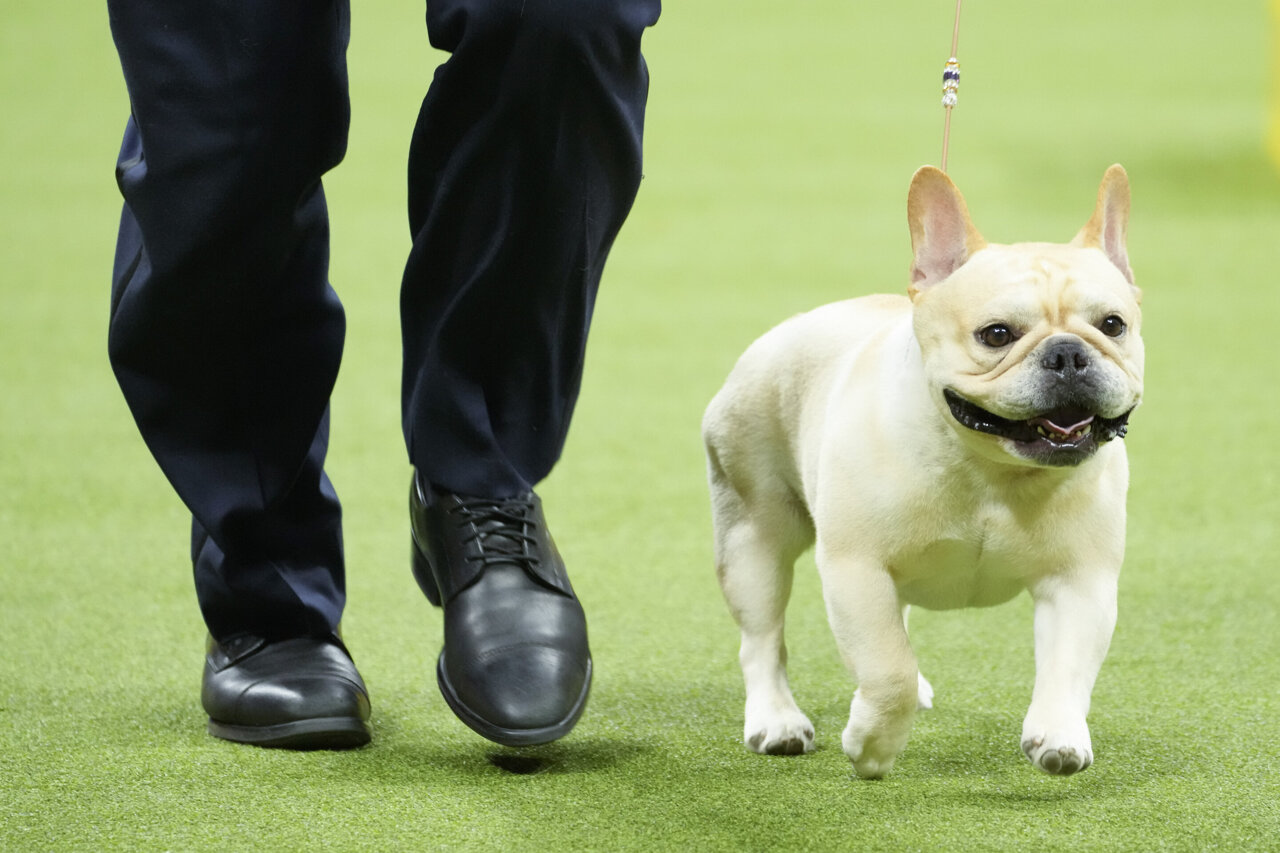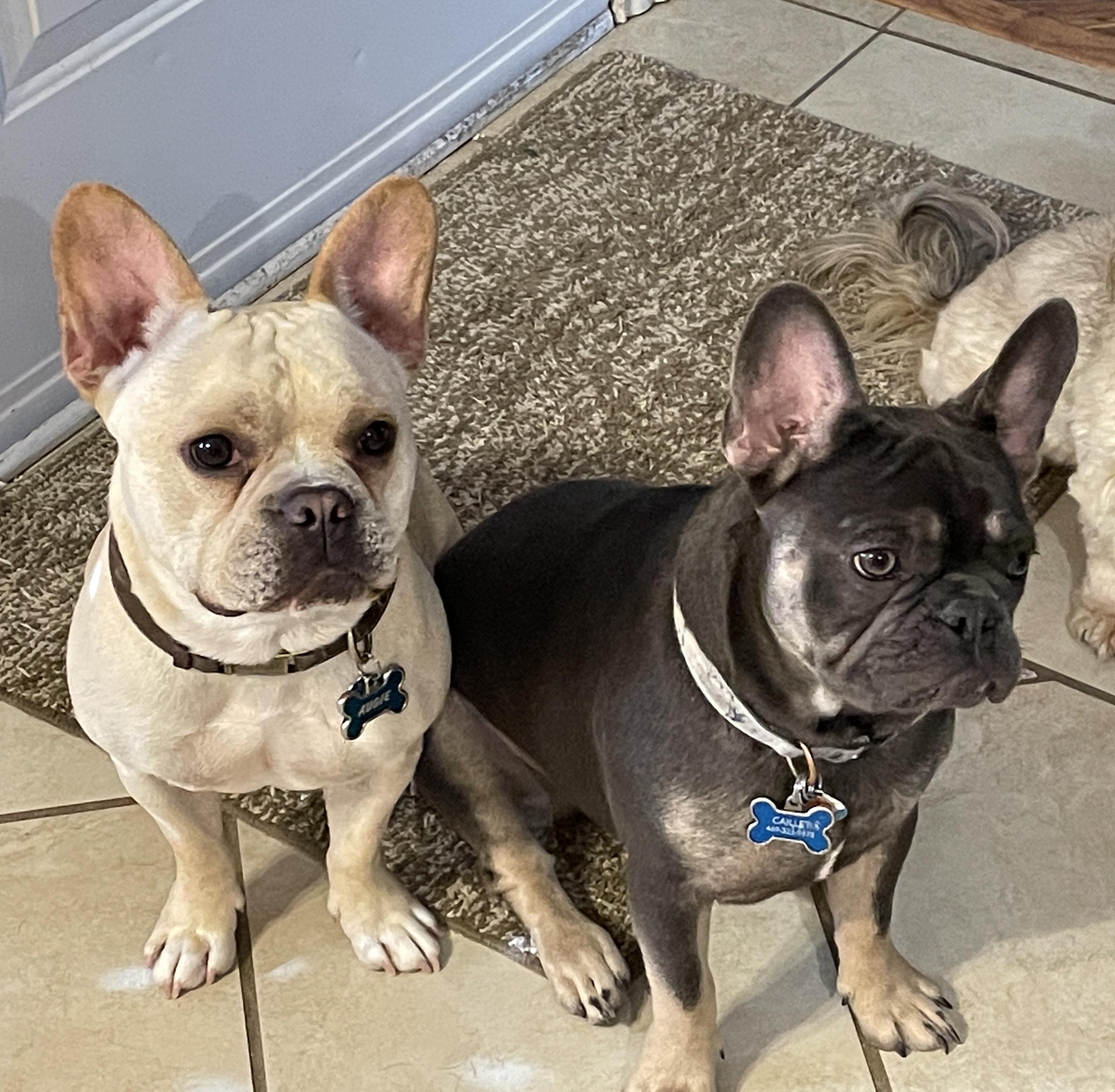
Introduction
Overview of Long-Nosed French Bulldog Breeds
The long-nosed French Bulldog, often a variation noted for its more elongated muzzle compared to traditional Frenchies, has drawn significant attention among dog enthusiasts. While the classic French Bulldog is celebrated for its cute, compact face, the long-nosed versions offer a healthier alternative by mitigating some of the breathing difficulties associated with brachycephalic (flat-faced) breeds. These dogs retain the charming personality traits typical of Frenchies, such as being calm, playful, and incredibly affectionate.
Characteristics that Distinguish Long-Nosed French Bulldogs:
- Breathing Ease: Longer noses facilitate better airflow and breathing.
- Active Lifestyle: They generally enjoy increased endurance during physical activities.
- Aesthetic Appeal: Some dog lovers appreciate the unique look of these variants.
Significance of Long-Nosed French Bulldogs in the USA
Over recent years, long-nosed French Bulldogs have gained traction within the United States, not just among pet owners seeking friendly companions but also as part of a broader movement advocating for healthier dog breeds. Their rise in popularity reflects a growing awareness of canine health and the importance of responsible breeding practices.
Many breeders in the US now focus on:
- Health Standards: Prioritizing genetic health over mere aesthetics.
- Community of Owners: Providing support and resources for those seeking healthier variations.
This shift illustrates how the canine community is evolving, recognizing the importance of both appearance and overall well-being for these beloved pets.

History and Origins
Origin of French Bulldogs
The French Bulldog, a breed beloved for its distinctive charm, has a fascinating origin story that weaves through three countries—England, France, and the United States. The journey begins in England, where the ancestors of today’s Frenchies were once strong and athletic bulldogs used for bull-baiting.
As bull-baiting was banned in the 1830s, these dogs transitioned from a fierce role to being companions, with smaller versions emerging as “Toy Bulldogs.” Around this time, skilled lace-makers migrated from England to northern France, bringing their beloved toy bulldogs along. These dogs began to captivate the French, who affectionately dubbed them “Bouledogues Français.” As French society embraced them, their popularity surged, especially among artists and the nightlife of Montmartre, making them fashionable companions for both the elite and the working class.
Development of Long-Nosed French Bulldog Varieties
As the French Bulldog evolved, American breeders sought to refine it further, leading to the establishment of distinct characteristics such as the iconic bat ears. While traditionally recognized French Bulldogs have shorter muzzles, the demand for healthier long-nosed varieties has surged.
These long-nosed Frenchies are often seen as a healthier alternative, providing improved airflow and reducing respiratory issues. The enhancing breadth of this variation caters to dog lovers who prioritize health alongside beloved Frenchie traits, highlighting an evolving narrative toward responsible breeding practices.
Through this dynamic history, French Bulldogs have transformed not just in appearance but also in the values surrounding their breeding, reflecting the desires of their caretakers past and present.

Characteristics of Long-Nosed French Bulldogs
Physical Features
Long-nosed French Bulldogs are adored not just for their charming personalities but also for their endearing physical attributes.
- Muzzle Length: As the name suggests, these Frenchies have notably longer snouts, which allows for improved airflow.
- Overall Size: Typically compact, these dogs maintain the sturdy build characteristic of the breed.
- Ears: They retain the famous bat ears that stand erect, contributing to their alert and expressive demeanor.
This longer snout not only enhances their aesthetics but also supports their respiratory functions, reducing the risks commonly associated with shorter muzzles. Owners often remark how these physical traits make their Frenchies much more active and engaging companions—engaging in games and longer outdoor activities without undue stress.
Behavioral Traits
When it comes to personality, long-nosed French Bulldogs embody the same lovable traits as their traditional counterparts:
- Affectionate: They thrive on companionship and love to be close to their owners.
- Playful: With a playful spirit, these dogs enjoy games like fetch and tug-of-war.
- Loyal: Their loyalty is unwavering, making them excellent family pets.
Many owners find that their long-nosed Frenchies have a disposition that helps them integrate seamlessly into various family environments, adapting quickly to any lifestyle while becoming cherished members of the household. Their blend of intelligence and affection makes them both delightful and rewarding companions.

Breeding and Registration
Breeding Practices for Long-Nosed Varieties
As the awareness surrounding the health issues in French Bulldogs grows, responsible breeders are shifting their focus toward creating long-nosed varieties. The goal is to enhance the breed’s overall fitness and mitigate common respiratory problems associated with short muzzles.
- Selective Breeding: Breeders are now prioritizing longer snouts to ensure better airflow and easier breathing, critical for overcoming conditions like brachycephalic obstructive airway syndrome (BOAS).
- Health Testing: Potential breeding pairs undergo extensive health testing to identify genetic predispositions to common issues, ensuring healthier offspring.
For instance, breeders like Chantal van Kruining advocate for a more athletic French Bulldog that can play and run without getting easily winded. She believes in transparency in breeding, making all health test results available to prospective owners, which has become increasingly important in the breeding community.
Registration of Long-Nosed French Bulldogs
When it comes to registration, long-nosed French Bulldogs face unique challenges. Currently, the American Kennel Club (AKC) primarily recognizes traditional short-muzzled French Bulldogs. However, as interest in the healthier long-nosed varieties increases:
- Breeding Standards: There is a call for updating breed standards to include long-nosed varieties, reflecting the evolving preferences of dog owners focused on health over aesthetics.
- Recognition Efforts: Breeders and enthusiasts are advocating for separate registration categories to acknowledge these healthier variations, which could enhance their visibility and acceptance in the dog show community while promoting a healthier future for the breed.
With the right practices and registers, long-nosed French Bulldogs can finally receive the recognition and attention they deserve within the breed community.

Health and Care Considerations
Common Health Issues
When considering a French Bulldog, it’s important to be aware of the common health issues that can affect the breed, particularly due to their brachycephalic (flat-faced) nature. Some prevalent conditions include:
- Brachycephalic Obstructive Airway Syndrome (BOAS): This often leads to serious breathing difficulties, especially during exercise or in warm weather. Dogs may pant excessively or have labored breathing.
- Allergies and Skin Conditions: Frenchies can be prone to skin allergies, which may manifest in itching, redness, or infections.
- Hip Dysplasia and Patellar Luxation: These structural issues can contribute to mobility problems over time.
Personal anecdotes from Frenchie owners often highlight the importance of routine veterinary checkups to catch these health issues early and provide necessary treatment.
Special Care Needs for Long-Nosed French Bulldogs
While long-nosed French Bulldogs are generally healthier than their traditional counterparts, they also require specific care considerations:
- Regular Exercise: They enjoy daily walks and playtime, which should be adjusted according to the temperature to prevent overheating.
- Diet Management: Preventing obesity is crucial; monitoring their food intake and ensuring a balanced diet is vital.
- Grooming: Regular brushing helps keep their coat healthy, and owners should regularly check skin folds to maintain hygiene.
By prioritizing these care aspects, owners can support their long-nosed French Bulldogs in living happy and healthy lives.
Popularity and Controversies
Rise in Popularity in the USA
French Bulldogs, affectionately known as “Frenchies,” have recently claimed the title of the most popular dog breed in the United States, overtaking the Labrador Retriever after a staggering 31 years at the top. This surge in popularity can be attributed to several factors:
- Adorable Appearance: With their bat-like ears and wrinkled faces, French Bulldogs have undoubtedly captured countless hearts.
- Urban Friendly: Their small size and minimal exercise needs make them ideal companions for city dwellers, fitting perfectly into compact living situations.
As folks flock to social media to showcase their Frenchies, these dogs have successfully become “it” companions, embraced by celebrities and influencers alike.
Controversies Surrounding Long-Nosed French Bulldogs
However, this rise in popularity has not come without its share of controversy.
- Health Concerns: The breed’s distinctive short snout has led to widespread health issues, such as Brachycephalic Obstructive Airway Syndrome (BOAS). Many veterinarians warn that breeding for aesthetic appeal has compromised the health of these dogs.
- Ethical Breeding Practices: There is a growing call within the breeding community for a focus on healthier, long-nosed varieties. Advocates stress the importance of prioritizing health over appearance, urging prospective owners to choose responsible breeders who screen for health problems.
These concerns highlight an ongoing cultural debate within the community regarding the ethical treatment and care of this beloved breed, prompting many dog enthusiasts to reconsider their breeding standards and practices.

Finding Long-Nosed French Bulldogs in the USA
Reputable Breeders
When searching for a long-nosed French Bulldog, choosing a reputable breeder is crucial. These breeders prioritize health over aesthetics, ensuring that their dogs have the best possible traits, including healthier breathing capabilities. Here are some tips:
- Health Screening: Look for breeders who conduct health screenings for conditions like Brachycephalic Obstructive Airway Syndrome (BOAS).
- Transparency: A good breeder will be willing to share health test results and the lineage of their dogs, fostering trust and transparency.
- References: Reach out to current owners of dogs from the breeder. Their experiences can provide insightful information about the health and temperament of the puppies.
Some reputable breeders, like BlueBell Frenchies in Illinois and Sweet Southern Frenchies in Louisiana, focus on promoting longer muzzles for better health outcomes. Always research and ask questions to find the best fit for your needs.
Adoption and Rescue Options
If you’re considering adding a long-nosed French Bulldog to your family, adoption is a wonderful option as well. Many rescue organizations specialize in French Bulldogs, helping to find homes for dogs in need.
- Local Rescues: Search for breed-specific rescues in your area that focus on French Bulldogs. They often have a mix of long-nosed and traditional Frenchies.
- Pet Adoption Sites: Websites like Petfinder can help you connect with available dogs.
Adopting a rescue dog not only provides a loving home to an animal in need but also often supports organizations dedicated to improving the health of the breed overall. Each option—whether through reputable breeders or adoption—can lead to finding the perfect long-nosed French Bulldog to join your family.

Conclusion
Summary of Long-Nosed French Bulldog Search
As interest in long-nosed French Bulldogs continues to grow, it’s clear that potential pet owners are becoming more health-conscious when selecting their furry companions. Long-nosed variations offer several advantages over traditional short-nosed Frenchies, primarily improved breathing and greater overall comfort.
- Health Prospects: These dogs are less likely to suffer from Brachycephalic Obstructive Airway Syndrome (BOAS), a common concern in the breed, and tend to enjoy a more active lifestyle.
- Availability: Reputable breeders and rescue organizations focusing on long-nosed varieties are becoming increasingly prominent, helping match families with healthier options.
Future Trends and Considerations
Looking ahead, the emphasis on breeding for health rather than appearance will likely reshape the landscape of French Bulldog ownership. Tracking this trend involves:
- Advocacy for Health: Breeders are urged to adopt practices that prioritize the health and well-being of the animal, and kennel clubs may continue to adapt standards accordingly.
- Community Awareness: As more information circulates about the benefits of longer snouts, enthusiasts must champion discussions about responsible breeding practices.
By embracing these changes, the future of the French Bulldog breed can be both charming and health-focused, allowing these adorable companions to thrive in their homes.

Leave a Reply